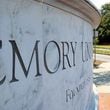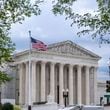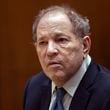Ten years ago, only 27 percent of Muslims in the United States said homosexuality should be accepted by society and 61 percent said same-sex relationships should be discouraged.
» RELATED: Muslims in America, by the numbers
But according to a Pew Research Center report released last week, the majority of Muslim Americans today — 52 percent — are now accepting of homosexuality, following a trend found in other American faith groups.
And even the Muslims who said religion is “very important” in their lives, have become 28 points more accepting since 2007.
» RELATED: Photos of famous Muslim Americans
Compared to other American faith groups, Muslim Americans are more accepting of homosexuality than white evangelicals (34 percent) and black Protestants (50 percent), but are not as accepting as white mainline Protestants (76 percent) and Catholics (66 percent).
Young Muslim Americans (Muslim millennials) also tend to be more accepting of homosexuality. Between 2007 and 2017, the percentage of Muslim millennials in America that said homosexuality should be accepted by society jumped from 33 percent to 60 percent.
The Pew report, which includes data from more than 1,000 adult U.S. Muslims, also found the majority of Muslim Americans continue to identify with or lean toward the Democratic Party (66 percent) and 39 percent describe themselves as politically moderate.
» RELATED: 5 inspiring quotes from iconic Muslim women to celebrate #MuslimWomensDay
Forty-four percent of Muslims eligible to vote cast ballots in last year's presidential election, compared to 37 percent in 2007. Those numbers on Muslim voting are compared to 60 percent of eligible voters overall who cast ballots in 2016.
Muslims overwhelmingly backed Democratic nominee Hillary Clinton, who drew 78 percent of their vote compared to 8 percent for Trump.
» RELATED: Mahershala Ali makes history as first Muslim to win an Academy Award
Alarmed by the anti-Muslim rhetoric during the 2016 campaign, American Muslim leaders, made an unprecedented push to register voters in mosques and at community events, leading to higher overall turnout.
Pew researchers estimate the number of U.S. Muslims has been growing by 100,000 each year, reaching 3.35 million, or 1 percent of the American population.
» RELATED: Georgia did not ‘ban Muslim culture,’ as fake-news websites claimed
By 2050, they estimate Islam will supplant Judaism as the second-most popular religion in the U.S. with Muslims making up 2.1 percent of the future population.
Just over half of U.S. Muslims identify as Sunni, while 16 percent identify as Shiite. Nearly six in 10 adult American Muslims were born outside the U.S.
The largest share of immigrants come from South Asian countries such as Pakistan, India and Bangladesh, while others have come from Iraq, Iran, sub-Saharan Africa and Europe.
» RELATED: Here’s how many refugees Georgia gets
American-born blacks make up about 13 percent of all Muslims in America, but their share is shrinking. Overall, eight in 10 are U.S. citizens, according to the survey.
Eight in 10 American Muslims also said they were concerned about Islamic extremism, and more than 70 percent said they were very or somewhat concerned about Islamic extremism in the U.S.
» RELATED: A warning of phone threats made to a Georgia mosque
However, three of 10 said that most of those arrested recently on suspicion of planning a terrorist attack had been tricked by law enforcement authorities and did not represent a real threat.
Read the full Pew Research Center report at Pewforum.org.
The Associated Press contributed to this story.
About the Author






